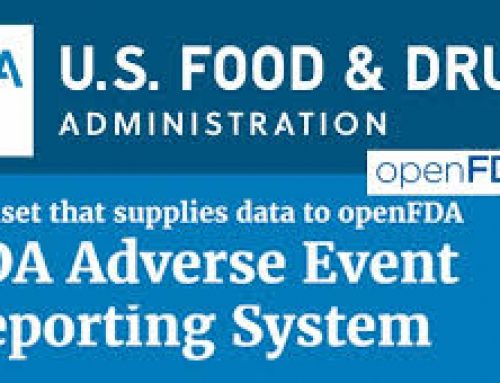A big hurdle for those who have experienced and are living with chronic illness brought about by Fluoroquinolones may have been crossed.
crossed.
Audrey Reynolds, Talia Smith, the Fluoroquinolone Toxicity Study Foundation, along with the assistance of Dr. Pieper, were the full team that prepared the ICD-10 proposal.
Talia Smith said the CDC informed her by email that ICD-10 codes are going to be created for physicians to report patients with Fluoroquinolone poisoning.
Why are ICD-10 Codes important?
- Standardized communication: ICD-10 codes provide a universal language for healthcare providers to record and share diagnoses. This allows for clear communication between doctors, hospitals, and other healthcare settings, even across different countries.
- Improved data collection: With consistent coding, healthcare data can be easily collected, analyzed, and compared. This helps track disease trends, monitor public health, and identify areas where healthcare resources might be needed.
- Better research: Researchers rely on ICD-10 codes to study diseases, develop treatments, and evaluate healthcare interventions. Accurate coding ensures studies have a reliable foundation.
- Accurate billing and insurance: ICD-10 codes are used for medical billing and insurance purposes. Having the correct code ensures proper reimbursement for healthcare services.
Overall, ICD-10 codes play a vital role in ensuring efficient and effective healthcare on a global scale.
A CDC spokesperson told reporter Ted Daniel with 25 Investigates, “The topic of fluoroquinolones was presented at the March 2024 ICD-10 Coordination and Maintenance Committee Meeting. CDC does not publish the codes that will be implemented in advance of their official release, as we must adhere to our internal clearance processes for final posting and release. The codes scheduled for implementation on October 1, 2025, will be made available on the CDC website sometime during the latter half of 2025.” The new USA ICD-10 codes will be specifically for “Adverse effects of fluoroquinolone antibiotics”
If the CDC delivers on its promise to create the codes the fight is far from over.
Here’s why:
Focus on Diagnosis: ICD-10 codes simply classify a condition. They don’t determine its severity or urgency.
Doctor’s Discretion: Doctors use their medical judgment and expertise to decide the level of attention needed for each patient regardless of the ICD-10 code.
It will still fall back to individual doctors to recognize Fluoroquinolone Toxicity or FQAD and use the reporting code. Dr. Pieper acknowledges that “Even now, lots of doctors, I would say most of them, they do not know about the clinical picture, although there are so many patients.”
Doctors have long ignored, dismissed, and marginalized those who have reported adverse events to Fluoroquinolones over the years and this trend continues on.
As for me, besides my own person chronic battles with with FQAD, not a day goes by, when I am not contacted by someone new to this terrible plight. Their stories are all the same and each story usually involves a doctor(s) who denies that FQAD exists.
We now hope a pray that the CDC follows through with their promises and gets the codes created in a timely manner. We also hope that when these codes come out doctors start utilizing these codes which, along with the help of these tireless advocates, get additional codes that will lead to much-needed research.
A big thank you to Audrey Reynolds, Talia Smith, Dr. Pieper, Ted Daniels, the Fluoroquinolone Toxicity Study Foundation and all those who contributed to this worthwhile endeavor. You have our profound thanks.
Talia Smith, a floxie who has been chronically impacted ever since taking Cipro for a UTI in 2021, has a popular TikTok channel documenting her journey. You can her TikTok’s at: https://www.tiktok.com/@taliasmith2021?lang=en
Sources:
https://www.yahoo.com/news/advocates-cdc-approves-floxing-reportable-213159108.html






Leave A Comment